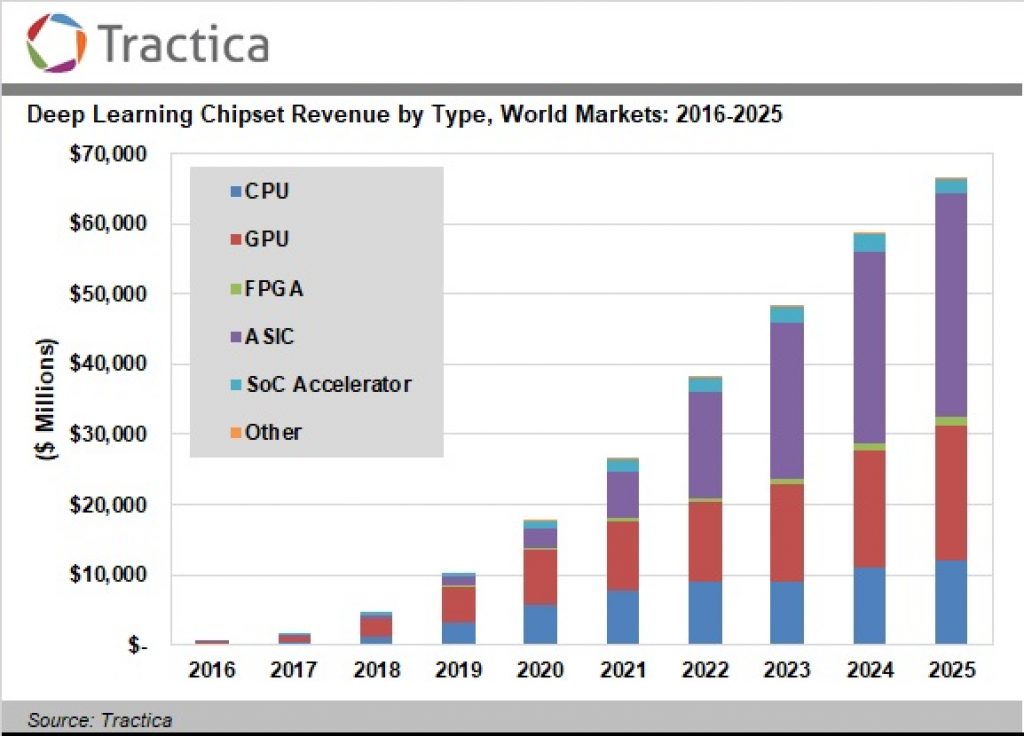This market research report was originally published at Tractica's website. It is reprinted here with the permission of Tractica.
The AI chipset market landscape continues to change every day, with more and more companies jumping into the market. By Tractica’s estimation, there are more than 70 startups, blue chip companies, cloud providers, and semiconductor companies building AI chipsets. Just 2 short years ago, there were only a handful companies in this market. The hardware solution, consisting of a chipset and architecture, is a key consideration for solving the AI algorithm acceleration problem. Only when the AI algorithm acceleration problem is solved will we see AI’s usage in every part of life.
Wanted: Multiple Hardware and Chipset Solutions
AI algorithms come in all shapes and sizes. AI applications vary from vary from low-power, edge-based IoT applications to ultra-sophisticated applications running on the servers scanning hundreds of camera video streams of 4K resolutions or petabytes of data. The compute performance, power, price, and requirements for such a wide range of use cases vary drastically. This translates into multiple hardware and chipset solutions with different architecture, performance, and power criteria catering to these markets.
The landscape in the AI chipset market is undoubtedly continuing to change rapidly. Tractica estimates that the market for AI chipsets is expected to explode, reaching $66.3 billion in worldwide revenue by 2025, at a compound annual growth rate (CAGR) of 73%. This is being driven by the fact that pretty much every application will sport some sort of AI engine, which will drive the need for silicon.

Networking Opportunities for AI Solutions Providers and Investors
The AI Hardware Summit taking place in Mountain View this month could provide a great avenue for semiconductor companies to talk about their products and differentiators. The conference has selected and curated an audience of more than 200 people and is an important event for anyone following the AI chipset industry.
Ed Nelson, the conference organizer, says that most AI conferences are large and have several thousand attendees. When he learned that there are more than 45 AI chipset companies via an article in The New York Times, he saw an opportunity to build a close-knit community of companies that focus on AI chipset and hardware, and put this event together. Many startups in the AI chipset area, such as Wave Computing, Cerebras, Graphcore, and Horizon Robotics, along with larger, blue chip companies like Intel and Facebook are presenting at the conference.
The conference will take place at Computer History Museum in Mountain View on September 18-19 and will feature more than 20 speaking sessions over 2 days. According to Ed Nelson, there will also be several attendees from the investment community. The conference sold out a month before the start date and, buoyed by the enthusiasm, Ed is already planning similar events in Asia. The conference will also offer plenty of networking opportunities for attendees, with more than 15 hours devoted to networking sessions.
Tractica will be attending the summit and will be sure to report on the latest news and trends in this rapidly changing market.
By Anand Joshi
Principal Analyst, Tractica


